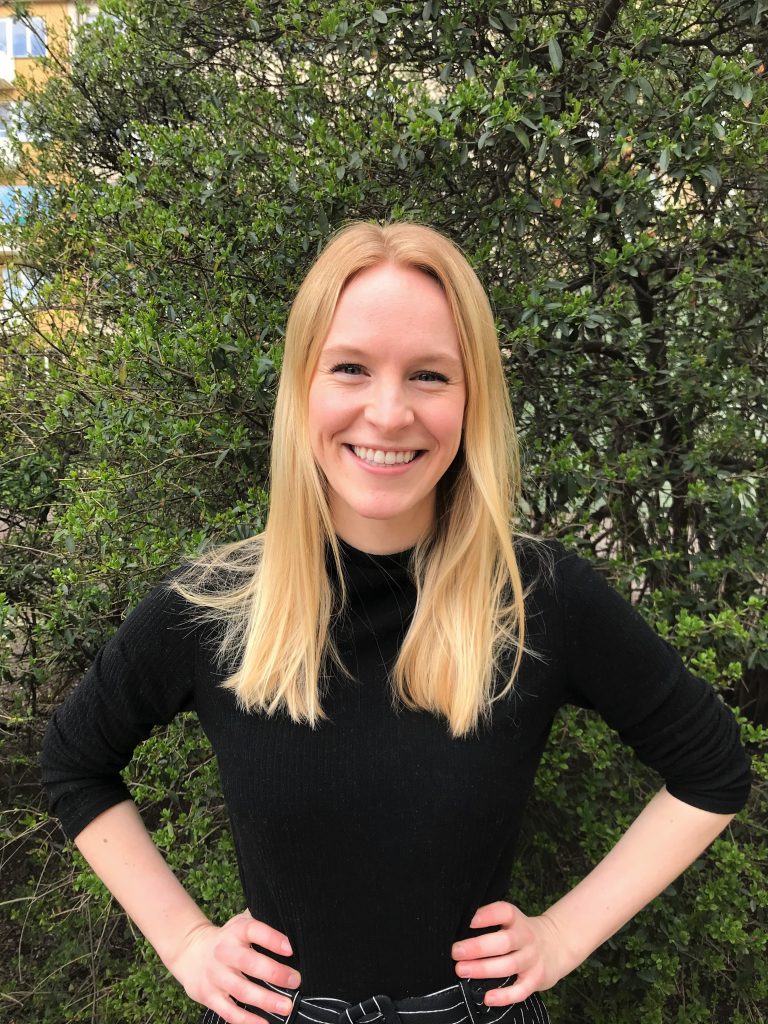The Bigger and Global Picture of Health – The Professional Journey of DLSPH Alumna Kate Lillepold
June 24/2020
By Tara Faghani Hamadani, MPH student at DLSPH
For Kate Lillepold, living and working abroad is a familiar experience.
“I think why I was drawn to the field of global health was that pathogens and diseases don’t respect borders,” says Lillepold, who completed her MPH in Epidemiology and a collaborative specialization in global health in 2018. “And yet there are different distributions of diseases across the world.”
Lillepold now works as a Research Assistant at the Royal Swedish Academy of Sciences, performing data analysis on sustainability sciences. She’s the only member of her interdisciplinary team with a public health background. Due to COVID-19, Lillepold now works from home, but that hasn’t slowed her down: “Since what I do is mostly analysis, my work has remained largely the same,” she says. “Nothing has changed other than me doing my work from my living room.”

Kate Lillepold
Her days consist of working on a project on emerging infectious diseases and land use from sustainability and evolutionary perspective. “I mostly prepare manuscripts by doing data analysis and doing literature reviews,” she says.
Although she is not doing “typical” epidemiology work, she still recognizes the value and importance of the skills learned through her degree.
With a background in Biology, Lillepold was drawn to global health as a means to look at the “bigger picture” of health. During her studies, she considered the differences between countries and regions, benefitting in particular from a practicum in Kenya with Professor Paula Braitstein through the global health collaboration. That allowed her to find her focus: planetary health.
“My practicum in Kenya was a very rich experience and was what drew me to work internationally and to engage with people from all over the world,” she says.
After graduating from DLSPH, Lillepold started working at the European Centre for Disease Control (ECDC), whose main office is located in Stockholm, Sweden.
“I applied to it as an international applicant, and I do feel like I got lucky as you feel like a number in a giant applicant pool,” she says, “One thing that helped me with my application was my clearly stated interest in climate change and health – I tried to show my passions in my application letter.” That interest led to a traineeship at the ECDC, where she worked at the Surveillance and Response Support (SRS) Unit.
“I find that the research skills that I learned in the epidemiology program are invaluable to what I am doing now,” she says. “Especially the training you get in recognizing bias, what makes a good research study, and how you can tell when something is causal – this mindset is something you acquire throughout the program and is something I use to this day.”
Lillepold notes that her conscious choice of working on topics that interested her, rather than traditional public health work, paid off since she has been able to work in those areas.
“Since planetary health isn’t a typical focus in public health, it has meant an unconventional route, as I prioritized that overworking solely on epidemiological studies,” she says. “I made that decision myself, and am happy with the trajectory of my career.”
Lillepold took part in DLSPH’s IG Takeover “A Day in the Life of Kate” – Watch it here: https://www.instagram.com/stories/highlights/18087044071168816/